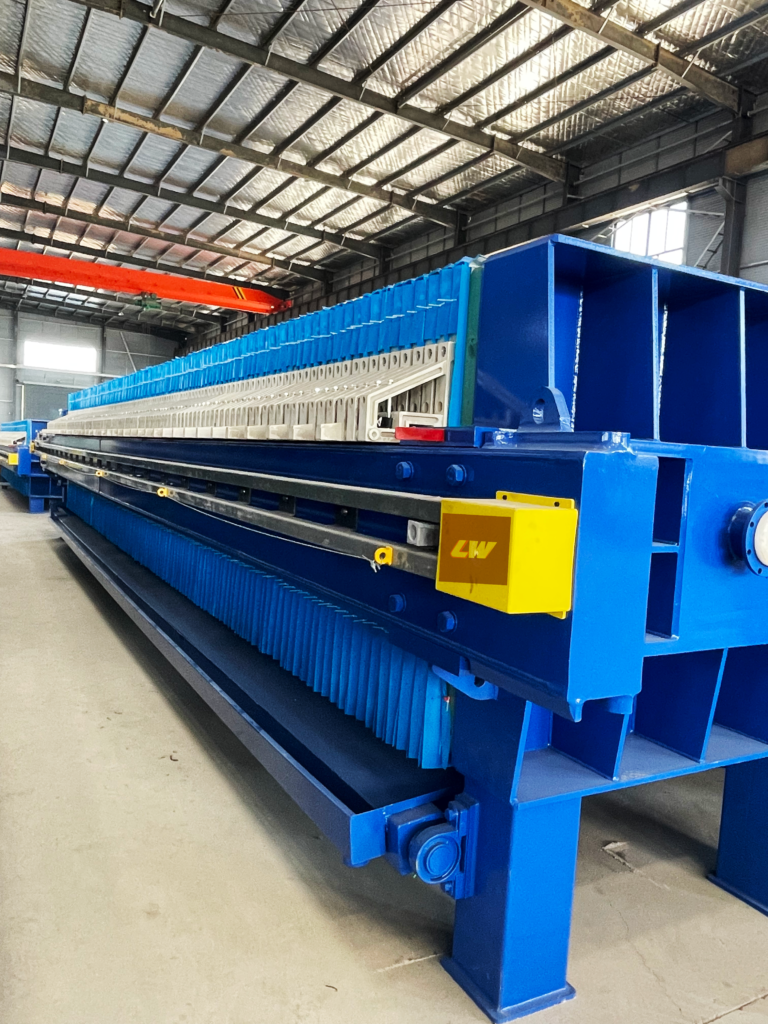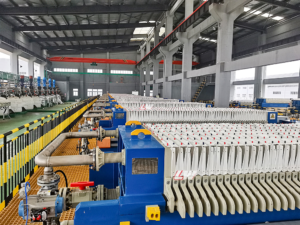Monofilament Filter Cloth

Key Features
✅Superior Filtration Efficiency: Captures particles with precision down to 0.005μm
✅Excellent Air Permeability: Maintains optimal flow rates while ensuring thorough filtration
✅Easy Cleaning: Simple maintenance reduces downtime and operational costs
✅High Tensile Strength: Withstands demanding industrial environments
✅Extended Lifespan: 10 times longer than conventional filter fabrics
✅Chemical Resistance: Maintains integrity when exposed to various chemical agents
Material Composition
Our monofilament filter cloths are manufactured using premium materials selected for specific industrial applications:
- Nylon (PA): Excellent flexibility and abrasion resistance
- Polyester (PET): Superior dimensional stability and chemical resistance
- Polypropylene (PP): Outstanding acid and alkali resistance
- PTFE (Polytetrafluoroethylene): Exceptional heat resistance and non-stick properties
Nylon and polypropylene constitute our primary materials due to their exceptional combination of strength, durability, and filtration capabilities.
Technical Specifications
| Parameter | Specification Range |
|---|---|
| Material Thickness | 0.2mm – 3.0mm |
| Mesh Count | 5-500 mesh |
| Filtration Precision | 0.005μm – 200μm |
| Temperature Resistance | Up to 280°C (varies by material) |
| pH Resistance | 1-14 (varies by material) |
| Tensile Strength | 1500-4500 N/5cm |
| Air Permeability | 100-8000 m³/m²·h |
Key Technology Behind Loway Automated Filter Presses
Pressure Filtration Mechanics
Automated filter presses use mechanical pressure to force liquids through filter media, typically filter cloths, while retaining solids. The pressure squeezes liquid from the slurry, creating increasingly dry solid cakes.
Automation Control Systems
Modern filter presses utilize sophisticated PLCs that control the entire operation from feeding to cake discharge. These systems monitor pressure, flow rates, and cycle times while making real-time adjustments for optimal performance.
Filter Media Technology
High-performance synthetic filter cloths with precise micron ratings ensure effective solid capture while allowing clear filtrate to pass through. Advanced media options include chemical-resistant materials for aggressive applications.

Get a Quote
Contact our team of filtration specialists today to discuss how our filter press solutions can address your specific solid-liquid separation challenges.
Request Instant Quote
Customized Solution for Your Project
86 189 5282 5752
support@lowayequipment.com
Advanced Technology in Monofilament Filter Cloth Production
Precision Weaving
Guarantees uniform pore size distribution.
Surface Treatment
Reduces clogging and enhances filtration efficiency.
Hydrophobic & Hydrophilic Treatments
Tailors the fabric to different filtration requirements.
High-Temperature Resistance Enhancement
Allows usage in extreme industrial environments.
Manufacturing Process of Monofilament Filter Cloth
- Raw Material Selection: High-quality polymer resins are chosen for durability and performance.
- Extrusion: Continuous filaments are produced through a high-precision extrusion process.
- Weaving Process: Filaments are woven into uniform structures using specialized weaving techniques.
- Heat Setting & Finishing: Improves dimensional stability and enhances mechanical properties.
- Quality Inspection: Ensures uniform pore sizes, strength, and durability before distribution.
Cement & Construction Industry
Industry Applications
Water Treatment & Environmental Protection
Metallurgy & Mining Industry
Chemical & Petrochemical Industry
Food & Beverage Industry
Common Questions
Have More Questions? Our technical team is ready to provide detailed, personalized guidance.
Q1: What is the difference between monofilament and multifilament filter cloth?
Monofilament filter cloth consists of single continuous filaments, providing better permeability and strength, while multifilament cloth is made of multiple strands twisted together, offering higher flexibility but lower durability.
Q2: How often should monofilament filter cloth be cleaned?
Cleaning frequency depends on the application, but regular backwashing and periodic chemical cleaning can extend its lifespan significantly.
Q3: Can monofilament filter cloth be used for liquid and gas filtration?
Yes, it is suitable for both liquid and gas filtration, making it versatile for industries like water treatment, mining, and chemical processing.
Q4: What is the best material for high-temperature applications?
PTFE is the best choice for high-temperature applications due to its exceptional heat resistance up to 250°C.
Q5: Where can I buy high-quality monofilament filter cloth?
High-quality monofilament filter cloth can be sourced from specialized manufacturers catering to industrial filtration needs.
How it works
We provide one-stop service of solid-liquid seporator planning, design, consultation, construction, equipment manufacturing, installation, commissioning and training. We are involved in complete sets of sludge dewatering projects for various industries.

Consultation what you need.
We do not aim to achieve maximum profit and do not reduce the quality of our products by catering to the market with low prices. We are happy to provide high quality tailor-made filtration equipment to you.
Production the filter press equipment for you
Our professional and advanced production technology, excellent manufacturing process, and perfect testing ensure that your equipment fully meets the quality acceptance standards.
Installation and commissioning equipment
Our skilled installation team installs this equipment for you in strict accordance with the construction drawings and construction process steps. Experienced technicians will debug and analyze the average results on site to achieve the best results and meet the needs of use.
After sales service
Our technicians patiently and meticulously answer all your questions and provide guidance and suggestions through messages, phone calls, videos, and arriving at the site.

